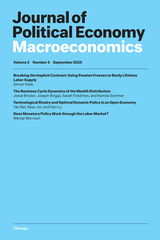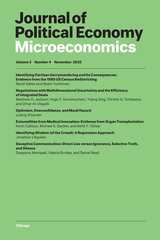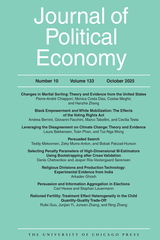
Harvey Leibenstein has written a major new book in microeconomic theory. It is a sophisticated reorientation of microtheory that breaks away from the conventional, highly refined neoclassical theory, which in turn is in the direct line of descent from Adam Smith's The Wealth of Nations (1776). The author accomplishes this feat by introducing modern psychological concepts to microtheory, by using individuals instead of collections of individuals as his basic units of study, and by suggesting that relating the theory to the concept of effort (an X-efficiency factor) will provide the most significant results.
His innovative central variable, effort, is an X factor, he reminds us, because of its relatively unknown character in affecting output. Basically this leads to a new mode of thinking about economic problems in which the optimizing assumption of standard theory becomes a special extreme case.
The X-efficiency factors—motivation, effort, and so on—allow for a restatement of microtheory. and for new applications and new conclusions: (1) businesses do not minimize costs or maximize profits; (2) actual productivity is very far from optimal even under conditions that approximate competition; (3) current modes of regulating monopolistic industries are apt to be inefficient at the expense of the consumer.
Lebenstein’s new theory also has practical applications for the problems faced by management of businesses in the private or public sector, and in the fiscal affairs of the nation. When the theory is applied to inflation — one salient and timely example — it leads to results implying that inflation may be a cause of unemployment rather than an influence that reduces unemployment.
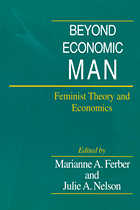
Beyond Economic Man raises questions about the discipline not because economics is too objective but because it is not objective enough. The contributors—nine economists, a sociologist, and a philosopher—discuss the extent to which gender has influenced both the range of subjects economists have studied and the way in which scholars have conducted their studies. They investigate, for example, how masculine concerns underlie economists' concentration on market as opposed to household activities and their emphasis on individual choice to the exclusion of social constraints on choice. This focus on masculine interests, the contributors contend, has biased the definition and boundaries of the discipline, its central assumptions, and its preferred rhetoric and methods. However, the aim of this book is not to reject current economic practices, but to broaden them, permitting a fuller understanding of economic phenomena.
These essays examine current economic practices in the light of a feminist understanding of gender differences as socially constructed rather than based on essential male and female characteristics. The authors use this concept of gender, along with feminist readings of rhetoric and the history of science, as well as postmodernist theory and personal experience as economists, to analyze the boundaries, assumptions, and methods of neoclassical, socialist, and institutionalist economics.
The contributors are Rebecca M. Blank, Paula England, Marianne A. Ferber, Nancy Folbre, Ann L. Jennings, Helen E. Longino, Donald N. McCloskey, Julie A. Nelson, Robert M. Solow, Diana Strassmann, and Rhonda M. Williams.
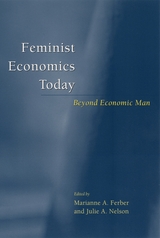
READERS
Browse our collection.
PUBLISHERS
See BiblioVault's publisher services.
STUDENT SERVICES
Files for college accessibility offices.
UChicago Accessibility Resources
home | accessibility | search | about | contact us
BiblioVault ® 2001 - 2025
The University of Chicago Press


